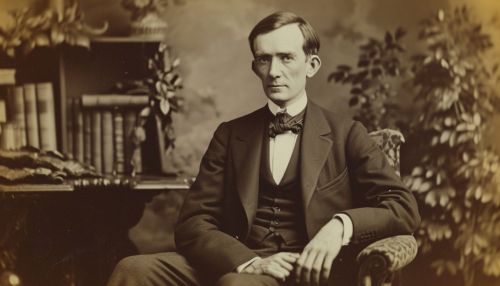Boolean Algebra
Introduction
Boolean algebra, named after mathematician and logician George Boole, is a branch of mathematical logic that deals with operations on logical values. It is a subset of algebra used for creating true/false statements, which can be either true or false, and is fundamental in the creation of computer programming and digital circuits.
History


The concept of Boolean algebra was introduced by George Boole in his first book "The Mathematical Analysis of Logic" published in 1847. Boole aimed to express logical relations in algebraic form, which led to the creation of a field in mathematics that entirely revolves around binary variables, with operations such as conjunction, disjunction, and negation.
Basic Operations
Boolean algebra primarily involves three basic operations: AND, OR, and NOT.
AND Operation
The AND operation, also known as conjunction, takes two Boolean inputs and returns true if both inputs are true. In Boolean algebra, the AND operation is often represented by a multiplication symbol.
OR Operation
The OR operation, also known as disjunction, takes two Boolean inputs and returns true if at least one of the inputs is true. In Boolean algebra, the OR operation is often represented by a plus symbol.
NOT Operation
The NOT operation, also known as negation, takes a single Boolean input and returns the opposite value. In Boolean algebra, the NOT operation is often represented by a prime symbol or a bar over the variable.
Laws of Boolean Algebra
There are several laws in Boolean algebra that help simplify Boolean expressions and operations. These laws are similar to the laws in elementary algebra, but they are applied to Boolean values.
Commutative Law
The Commutative Law states that the order of the variables does not change the outcome of the AND or OR operation.
Associative Law
The Associative Law states that the way in which the variables are grouped does not change the outcome of the AND or OR operation.
Distributive Law
The Distributive Law is the only law of Boolean algebra that interrelates the AND and OR operations. It states that each variable of the OR operation must be individually ANDed with each variable of the AND operation.
De Morgan's Law
De Morgan's Laws are transformation rules that are both valid in Boolean algebra. The laws are named after Augustus De Morgan who introduced these laws.
Boolean Functions
A Boolean function is a function that operates on binary input and returns a binary output. Boolean functions are the building blocks of digital circuit design and are crucial in creating truth tables, Karnaugh maps, and logic gates.
Applications of Boolean Algebra
Boolean algebra has wide applications in computer science, electrical engineering, and mathematical logic. It is used in the design and operation of digital computers, the design of combinational and sequential logic circuits, and the creation of computer algorithms and software.
